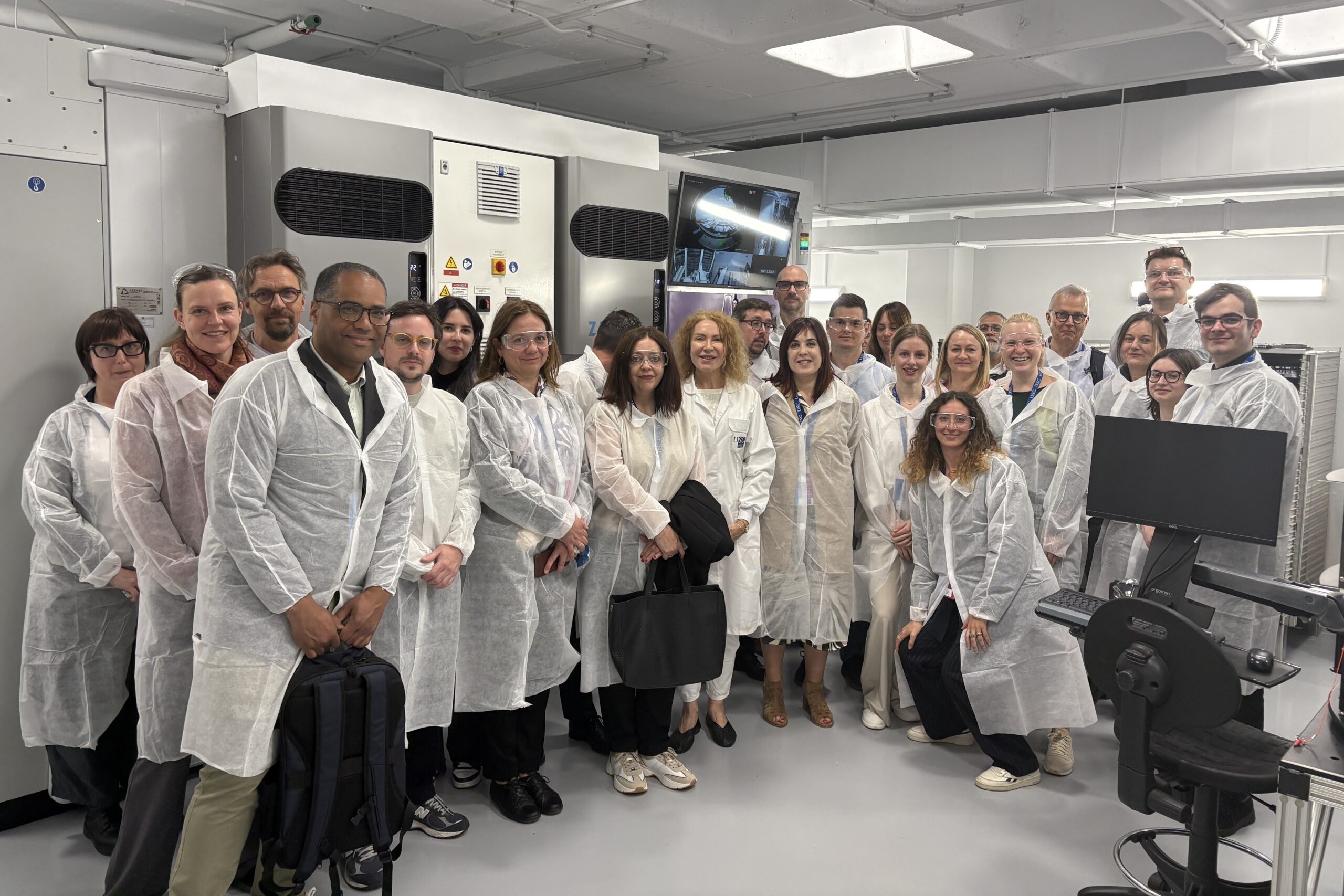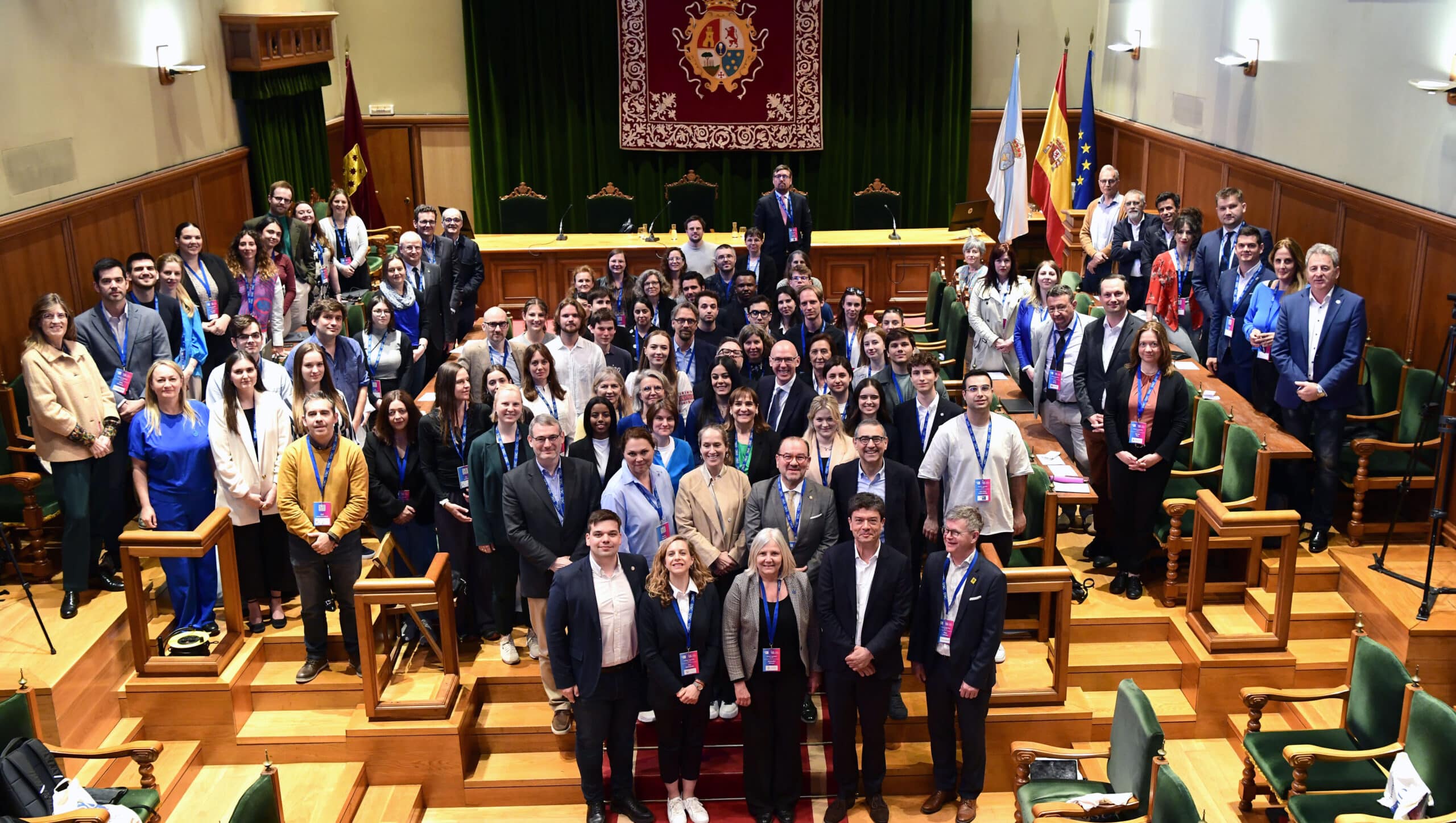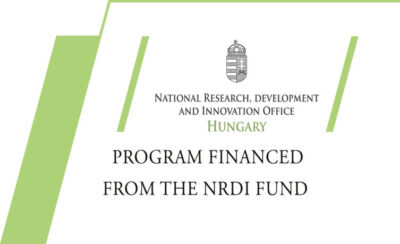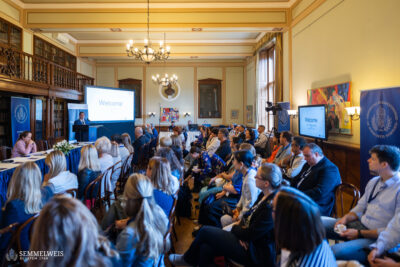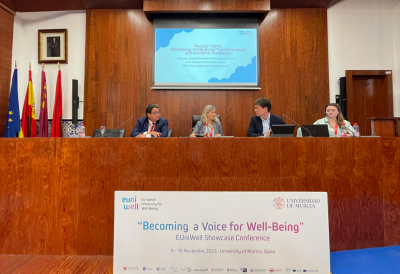The event was hosted by the local EUniWell partner, the Universidade de Santiago de Compostela (USC), and this year, Associated Partners also played a prominent role.
Semmelweis University was represented by a delegation including Dr. Tamás Hegedüs, Head of the Alumni Directorate; Prof. Miklós Kellermayer of Health Arena Leadership at EUniWell, Head of the Department of Biophysics and Radiation Biology; Dr. Marcel Pop, Head of the Directorate of International Relations (NKI); Eszter Turopoli, Deputy Director of NKI; Dr. Ádám Orosz, Assistant Professor at the Department of Biophysics and Radiation Biology; Dr. Dániel Végh, Assistant Professor at the Department of Prosthodontics; Dr. Ajándék Eöry, Associate Professor at the Department of Family Medicine; Levente Vágó, Deputy Head of the Alumni Directorate; Fanni Matyasovszki, Internal Relations Specialist at NKI; Pana Djamtorki, Student Officer for the EUniWell Team at Semmelweis, and Márk Havasi, Head of the International Students’ Committee at the Students’ Union. Throughout the three-day event, the representatives participated actively in several bodies, including the EUniWell Rectors’ Assembly, the EUniWell Board, the Institutional Coordinators group, the Work Package for Responsible Research, Innovation and Entrepreneurship (WP8), the Student Board, and the Associated Partners’ meeting. Their contributions and insights were key in shaping discussions and moving initiatives forward. The Rectors’ Assembly provided space for building new international connections and offered valuable opportunities to revisit, refine, and plan future joint projects.
The program started on May 5 with internal meetings of the Alliance’s governing and operational bodies, followed by a welcome reception at the Galician Parliament, the Parlamento de Galicia. The evening was opened by the President of the Galician Parliament, Miguel Ángel Santalices Vieira, who highlighted the importance of European cooperation:
I am firmly convinced that alliances such as this one enable us to deepen the bonds between European countries through universities and academic training, while also extending beyond national borders.
The reception served as a gesture of welcome and recognition, underlining the close links between regional government, higher education, and European cooperation.
A central focus of the EUniWell Assembly was the role of European University alliances in a time of global uncertainty. In the open sessions, EUniWell rectors and institutional leaders discussed how to safeguard academic freedom, manage the growing importance of research security in a time shaped by artificial intelligence, and fully leverage collaboration within and beyond the Alliance. Throughout the discussions, a clear consensus emerged: In an increasingly fragmented world, alliances like EUniWell can serve as stable and forward-thinking platforms for academic resilience and impact.
The following day’s agenda featured the first official meeting of the EUniWell Associated Partners. This format marks a new step in enabling civil society and industry partners to engage more closely with the Alliance’s mission and activities. The morning meeting featured presentations from Associated Partners and EUniWell members, showcasing practical examples and opening space for mutual understanding. In the interactive Market of Possibilities session, participants identified common interests and initiated ideas for long-term collaboration. Later in the afternoon, the representatives joined thematic networking meetings across the host city and university, exploring different industry partners in healthcare and research. They had the opportunity to look behind the scenes at a molecular medicine laboratory where new drugs for chronic diseases are tested. They also had the opportunity to practice resuscitation in one of the simulation rooms of a hospital. The event marked a key milestone for EUniWell’s civic engagement and knowledge transfer efforts and laid the groundwork for future cooperation.
In the afternoon, the Rectors’ Assembly held its closed session, addressing key strategic topics such as the EUniWell 2030 strategy, the implementation of the EUniWell Well-being for our Future (WeFF) project, and preparations for the upcoming COFUND proposal.
On the closing day, May 7, focus turned to students and partner institutions. Two roundtable sessions explored ways to enhance student experience and foster a broad societal commitment to a shared well-being agenda. The event concluded with a Europe Day celebration and a symbolic walk along the final stretch of the Camino de Santiago, a route that has symbolized unity and shared values across Europe for centuries.
Semmelweis University’s delegation contributed to the success of the event with its professional expertise, dedication, and visibility. Strengthening the university’s role in the international EUniWell community will continue to be a priority in the future.
Semmelweis University’s participation in the EUniWell WeFF project and the EUniWell Rectors’ Assembly was financed from the National Research, Development and Innovation (NRDI) Fund.
Fanni Matyasovszki, Directorate of International Relations
Image credit: EUniWell

